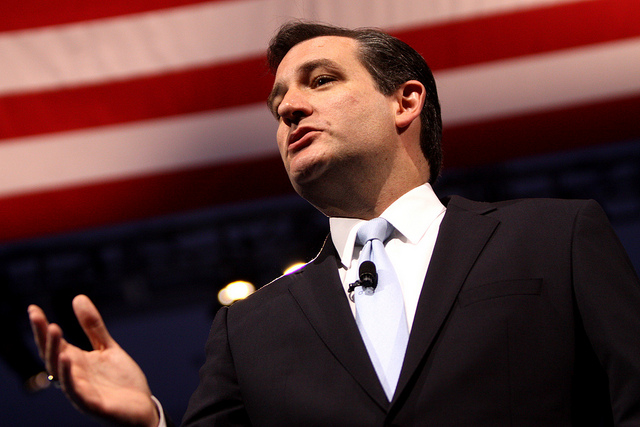By Samuel Farnum

Courtesy of Flickr
Ventures into comedy for presidential hopefuls have become increasingly common since the 2008 election. In that year, the American public would see Barack Obama running a circuit of late night appearances, as well as John McCain and Sarah Palin appearing on “Saturday Night Live.” As we continue slogging through the election of 2016, it seems as though candidates increasingly look to comedy as a means to boost perceptions of relatability to voters. Earlier this month, Bernie Sanders made his own appearance on SNL, and Hilary Clinton lent her presence to the show just weeks before that. With most serious candidates giving these comedic strategies a try, it seems reasonable to ask whether or not it is actually a good plan for presidential hopefuls to make fun of themselves. Does it make them seem more approachable or is it a disgraceful attempt to seem relatable?
Whether or not these comedic strategies work completely depends on each individual candidate’s approach to comedy. “With Harry Shearer retiring, I’m auditioning for any part I can get in ‘The Simpsons,’” a glassy-eyed Ted Cruz said to the camera that had somehow appeared before him.
Cruz then hissed a drawn out “excellent,” simultaneously solidifying the beginning of his audition and two minutes of agonizing discomfort for over 800,000 YouTube viewers. “Oak-aly-dok-aly neighbor-ino!” He yelled as though he was alone, possibly in front of a mirror. Though it was tempting to yell a warning of some sort — to alert Senator Cruz about the presence of a hidden a camera — he would have been not able to hear, as he could not even hear the stream of digital commenters echoing the same sentiment, and so it continued.
The lines were all correct but something was wrong. Like a method actor who spent years studying the wrong part, Cruz delivered his split monologue in the spirit of a resurrected televangelist. At that point, any viewer with a conscience began feeling a sense of responsibility to do something, anything, to stop what was taking place. You found Cruz’s senate office contact number through a quick Google search and, running out of the room in search of a phone, missed the conclusion of the video but began your long, uphill journey back to sound mental standing.
Cruz’s video seemed like it was secretly recorded in his family bathroom. However, the video was the result of a planned production between Buzzfeed and the Cruz campaign. So why did it come off so poorly? It all boiled down to a simple concept: authentic representation. Laughing at oneself can be a great way to show genuine qualities in the political sphere, but only when a candidate approaches comedy in an honest way.
With the exception of Senator Al Franken with a writing tenure on “SNL,” politicians are not comedians, and the American public realizes this. To honestly participate in comedic discourses, candidates must approach comedy from an outsider’s perspective, or else risk seeming insincere. When candidates perform comedic routines, such as the one Ted Cruz displayed in his YouTube short, they adopt a role like an actor. In this sense, politicians play comedians instead of themselves. If politicians separate from their own identity in the midst of a comedy routine, then there is nothing for voters to relate to.
From an outsider’s perspective, however, candidates can avoid the problematic aspects of comedic acting. Using this strategy, comedy is not derived from a routine that the candidate performs, but rather from the candidate playing him or herself in the unfamiliar context of a comedic situation. Bernie Sanders remained Bernie Sanders, the politician, during his “SNL” appearance, but retaining his identity juxtaposed with a comedic sketch produced a comedic effect. And social media chatter following the appearance suggested viewers thought it worked well. Comedy in politics looks like it is here to stay. Within a few decades, a late night run or an “SNL” cameo will probably be listed with other presidential requirements like age and origin of birth. If politicians want to keep getting votes, they need to stop acting funny and start being themselves.
Samuel Farnum, FCRH ’16, is an English and Music Studies major from Ranchester, Wyoming.
